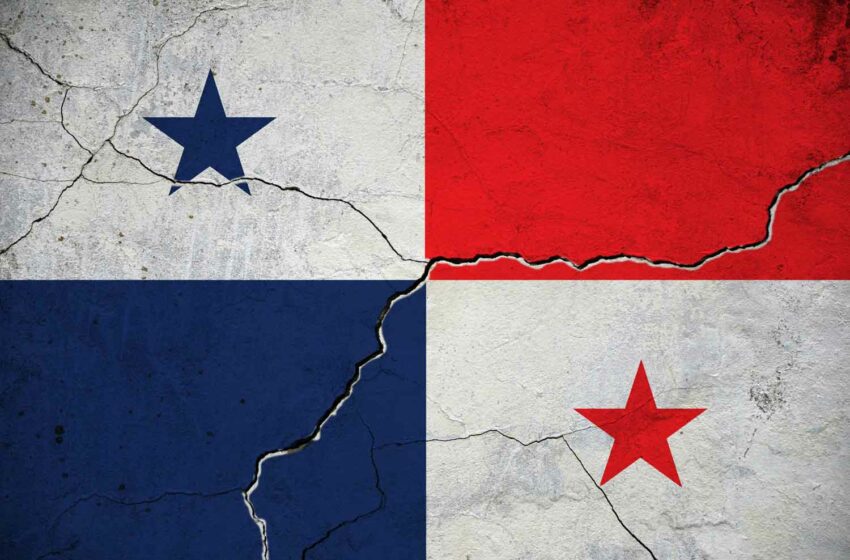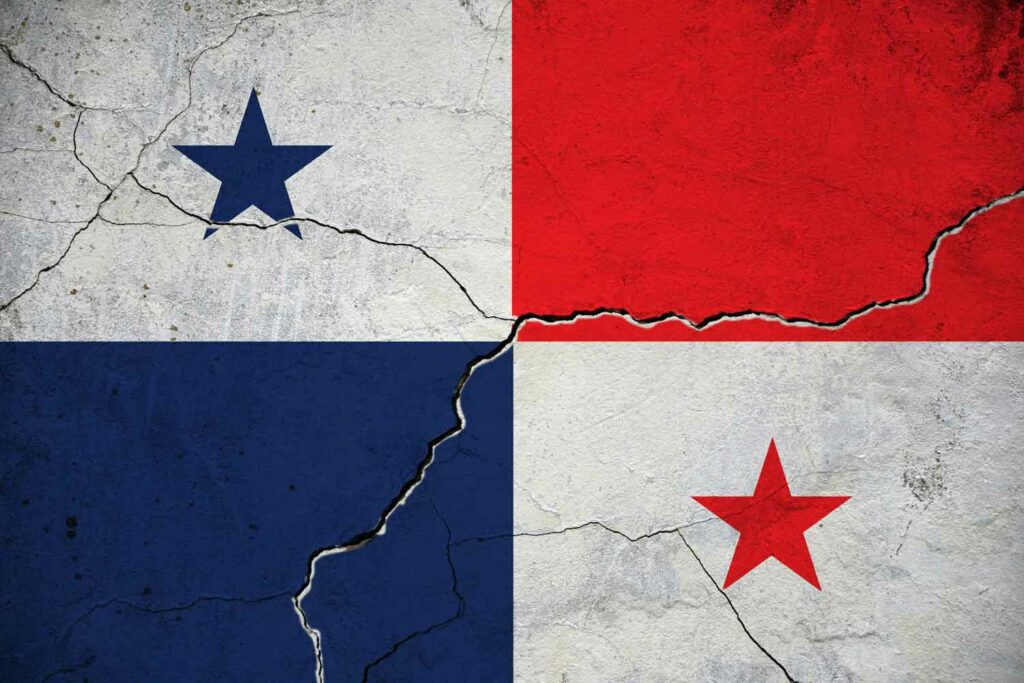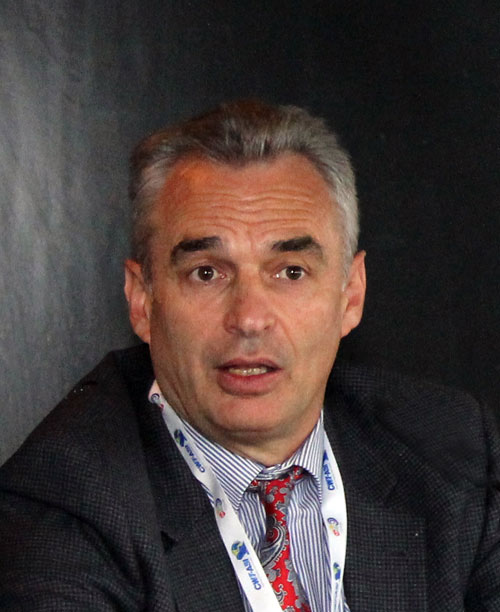Mediocre Meeting
- Also in TR Print Edition
- April 1, 2024
- 0
- 14 minutes read


COP10 is unlikely to significantly accelerate progress toward the FCTC objectives.
By Stefanie Rossel
The scene could have been from a Monty Python movie. During the 10th session of the Conference of the Parties (COP10) to the World Health Organization Framework Convention on Tobacco Control (FCTC), authorities raided four hotels hosting tobacco harm reduction (THR) advocates, investigating reports of “T-shirts and pamphlets advertising harmful products,” according to Martin Cullip, International Fellow at the Taxpayers Protection Alliance’s (TPA) Consumer Center.
“These turned out to be clothes worn by consumer advocates bearing their organization’s name and flyers politely addressing COP10 delegates and asking them to consider harm reduction,” he says. “It is shameful that Panama considers materials expressing the right to free speech and democratic engagement to be a criminal matter.”
Concurrent with COP10, Cullip co-organized the TPA’s “Good COP” (“Conference of the People”) counter-conference at the Central Hotel Panama. The event was livestreamed and featured almost two dozen tobacco harm reduction experts representing 14 different countries. With their presentations, they said that they were holding the WHO accountable for denying “lifesaving access to tobacco harm reduction products” and denying the public and media access to the COP meetings.
“We know that the WHO were aware of our event as it was mentioned in webinars by Corporate Accountability, the University of Bath and the Network for Accountability of Tobacco Transnationals,” says Cullip. “It is also included in a page on COP10 interference at Tobacco Tactics [a knowledge exchange platform monitoring the tobacco industry’s activities]. One purpose of the event was to get the WHO’s attention, so we are thrilled to have achieved that. There were no attempts to stop our event, but we were visited by an inquisitive group from Vital Strategies, and a couple of delegates ventured away from the conference to have a snoop around our hotel.”
While the “Good COP” organizers did not interact with any COP10 delegates, consumer representatives who attempted to go to the Convention Center in the hope of having a discussion were stopped. “Journalists approached WHO front groups ‘protesting’ outside the building but were told that only FCTC-accredited media would be spoken to,” says Cullip.
Another Private Function

COP10 was business as usual in many ways. As in past events, the conference managed to maintain its secrecy. Media representatives were cherry-picked in an accreditation process that denied access to anyone who doesn’t share the WHO’s idea of tobacco control. But even the Chosen Ones were thrown out after the delegates voted on Day 1 to exclude the press. Nongovernmental organizations (NGOs) wishing to take part had to pass a similar test of faith while consumers who have successfully quit smoking with the help of reduced-risk products were banned from sharing their experiences.
The absence of dissenting voices allowed delegates to spread misinformation uncontested, as in the estimate of the area of land cleared for tobacco cultivation every year. It also allowed them to shame states for THR-friendly policies. The Philippines, for example, received an “Ashtray Award” for its “brazen use of tobacco industry tactics of obstinate dispute and delay throughout the COP.” Without outside scrutiny, the delegates could also conveniently ignore scientific evidence from studies not commissioned by the WHO or its financial supporters led by Bloomberg Philanthropies.
In such a climate, only a few delegations had the courage to use the short progress statements during the opening plenary to discuss their countries’ positive experience with novel nicotine products. New Zealand was the only party to point out how the implementation of a differentiated, evidence-based regulatory framework that includes reduced-risk products (RRPs) had contributed to significantly reduced daily smoking rates.
Most other country statements were disappointing, according to Cullip. “Canada made no mention whatsoever of harm reduction, and the U.K. were too timid to even mention the ‘Swap to Stop’ campaign, which is a central plank of the U.K.’s efforts toward the country’s Smoke-Free 2030 goal and is always mentioned in parliamentary question answers on the subject,” he says. “One can only assume they were scared of upsetting the FCTC Secretariat, so they chose not to rock the boat. There is also a suspicion that the U.K. announced its ban on disposable vapes, plain packaging and restrictions on flavors just a week before deliberately so they would be looked on favorably by the WHO.”
Armenia, El Salvador, Guatemala and the Philippines were among the few parties to mention THR at the conference. They called for a serious and evidence-based discourse on novel tobacco products, stressing the need to consider alternative methods of reducing the health impacts of smoking. The Philippines, whose regulatory framework has recognized the role of RRPs since 2022, cited FCTC Article 1(d), which stipulates that harm reduction is one of the pillars of tobacco control.
“There were signs at COP10 that some countries are softening on harm reduction, and quite a few made country statements referring to THR or voicing the opinion that the WHO should recognize the potential,” says Cullip. “During the proceedings, some parties also questioned the quality of reports presented by the FCTC for COP10. I had the impression that some delegations realize that the genie is out of the bottle on reduced-risk nicotine products and [that] it’s best to recognize that and accommodate them in tobacco control policies instead of banning them, which is unrealistic and futile.”

There were signs at COP10 that some countries are softening on harm reduction, and quite a few made country statements referring to THR or voicing the opinion that the WHO should recognize the potential.
Debate Postponed
In line with the agenda, COP10 delegates debated novel nicotine products but without making decisions. Discussion on FCTC Articles 9 and 10, which deal with the testing and measuring of tobacco products’ contents and emissions, and the disclosure of such information, went on for the full length of the conference without achieving consensus. Cullip views this as a positive development. “It is good for consumers and public health that the wild proposals contained in COP10 reports on Article 9 and [Article] 10 did not gain any traction at COP10,” he says.
St. Kitts and Nevis urged the FCTC Secretariat to form a working group to discuss harm reduction and to define it under the terms of Article 1(d). “This is the first time that any meaningful discussion has taken place on that part of the treaty, so it is quite significant,” says Cullip. “A working group is open to all parties to the treaty to take part in whereas an expert group is populated by cherry-picked NGOs and ‘experts’ appointed by the FCTC Secretariat and Bureau.
“The WHO wanted an expert group set up to discuss Articles 9 and 10 to replace the previous working group, which was suspended in 2018 at COP8. Parties had been surveyed in 2020 and 2021 about the fate of the working group, and a majority, both times, were in favor of reactivating it. However, their wish was ignored, and the WHO proposed setting up an expert group regardless. It tends to explain why parties could not come to a consensus, and the St. Kitts proposal just added to the disagreement.”
THR proponents had asked for a working group in the run-up to COP10, but so far to no avail. “There is still no formal confirmation of the decision, let alone its scope of work, objectives, criteria or membership,” says Delon Human, president and CEO of Health Diplomats and co-author of a COP10 scorecard report that measures the progress in achieving the FCTC objectives. “However, WHO’s silence on this issue should not overshadow the importance of member states finally beginning to ask the right questions,” Human notes.
Derek Yach, who as a WHO cabinet director and executive director was heavily involved in the creation of the FCTC two decades ago, hopes that the FCTC Secretariat will look back at the way it held broad consultations with industry scientists in the years leading to the adoption of the treaty. While a draft decision requires parties to review and update the evidence and science related to tobacco harm reduction by COP11, the text, according to Yach, suggests that the proposer has prejudged the outcome.
“It highlights ‘the need to be informed about activities of the tobacco industry that have a negative impact on tobacco control,’” says Yach, who is also the lead author of the COP10 scorecard. “Never once does the decision hint at possible positive effects of THR on tobacco use and its ultimate effect on health. Further, the decision reverts to outdated science when discussing tobacco cessation. Use of the terms ‘concern,’ ‘caution’ and ‘challenges’ all portray THR in a negative light. If this decision is adopted, it may hamper a needed open scientific debate about benefits at a time when these become clearer and stronger with new major publications.”

The world of tobacco control and THR has changed dramatically since [2003], which is unfortunately not reflected in the interpretation, development and implementation of FCTC guidelines.
No Significant Effect Anticipated
The COP10 scorecard was shared with all COP10 delegates and a host of non-state THR stakeholders, according to Human. The responses received by non-state actors such as NGOs or public health advocates were mainly positive, he notes, while state actors only acknowledged receipt. The report assessed progress made by the parties to the FCTC in six sections. Trends in tobacco use and impact was rated an E-, commitments, resolutions and pledges received a B+ and implementation of resolutions a D-. In the three other sections, the FCTC got poor marks too.
Measured against the findings of the scorecard, COP10 didn’t fare well, according to Human. “The most disappointing aspect of COP10 was the ongoing nonrecognition of THR as an integral part of tobacco control as stated in Article 1(d) of the FCTC,” he says. “Therefore, the ‘fail’ grade for not embracing THR was perpetuated. This is […] a failure to prevent unnecessary tobacco-related disease, disability and premature deaths.”
Furthermore, the “fail” marks for neglecting THR research priorities and capacity-building in low-income and middle-income countries were validated not only by nonaction but accentuated by the ongoing exclusion of key stakeholders, Human points out. “We scored the lack of stakeholder engagement as a ‘fail’ beforehand, and unfortunately, the COP10 exclusionary behavior confirmed the ‘fail,’” he says. “FCTC’s Article 5.3 requires parties to protect the implementation of their public health policies against the commercial and vested interests of the tobacco industry. Yet this is impossible when many of the same countries are also striving to generate revenue from state-owned tobacco entities.”
Globally, 18 governments own 10 percent or more of at least one tobacco company. This is likely to interfere with at least one of the decisions referenced in COP10’s Panama Declaration: the creation of a working group to deal with Article 19, which nations can use to hold the tobacco industry liable for people’s health and the environment. The article was repeatedly discussed in previous COP meetings, says Human.
“The expert group which has been established will be made up of lawyers from various countries, with experience of holding tobacco companies accountable. At COP6, the expert group on Article 19 presented a comprehensive report on civil liability for the tobacco industry, and at COP7, it presented an online Civil Liability Toolkit. Whether this leads to a flurry of lawsuits after COP10 remains to be seen. The technical guidance needs to be backed up by political will in countries. Tobacco companies remain one of the most effective tax collectors for countries, so the most likely outcome will be prolonged discussions followed by minimal action,” says Human.
Human feels encouraged by the COP10’s decision to set up another expert group to work on “forward-looking control measures” under Article 2.1, which encourages governments to implement measures beyond those required by the FCTC. “The world of tobacco control and THR has changed dramatically since [2003], which is unfortunately not reflected in the interpretation, development and implementation of FCTC guidelines,” he says.
“Article 2.1 might offer hope in that it could guide the COP to better translate new information, science, products and consumer experience into actions. As a starting point, our hope is that the workgroup would review current peer-reviewed literature on the effectiveness of noncombustible nicotine alternatives such as ENDS [electronic nicotine-delivery systems] to facilitate and accelerate cessation. Then it could play a role in balancing the COP focus to consider supply side measures in equal weight to the current focus on reducing demand for tobacco products.”
For Human, the recent COP’s decision to strengthen language around Article 18, which urges parties to take account of the environmental impacts arising from the cultivation, manufacture and consumption of tobacco products as well as the waste they create, is positive, as it will help integrate tobacco control policy with those protecting the environment. “For example, it will improve policy coherence between the FCTC and national and international treaties, like the Intergovernmental Negotiating Committee on Plastic Pollution, aimed at addressing hazard waste from tobacco products, including cigarette butts,” he says.
“Another positive outcome could be an acceleration of identifying and promoting economically viable and sustainable agricultural alternatives to tobacco growing. All in all, it should strengthen implementation of the FCTC.”
Human is less optimistic that the decisions taken at the event will contribute to accelerating the decline of global tobacco consumption. “Based on the mediocre decline in tobacco consumption facilitated by COP1 to COP10 and the inability of parties to fully embrace harm reduction strategies, science, products and methods, no significant declines are expected.”

